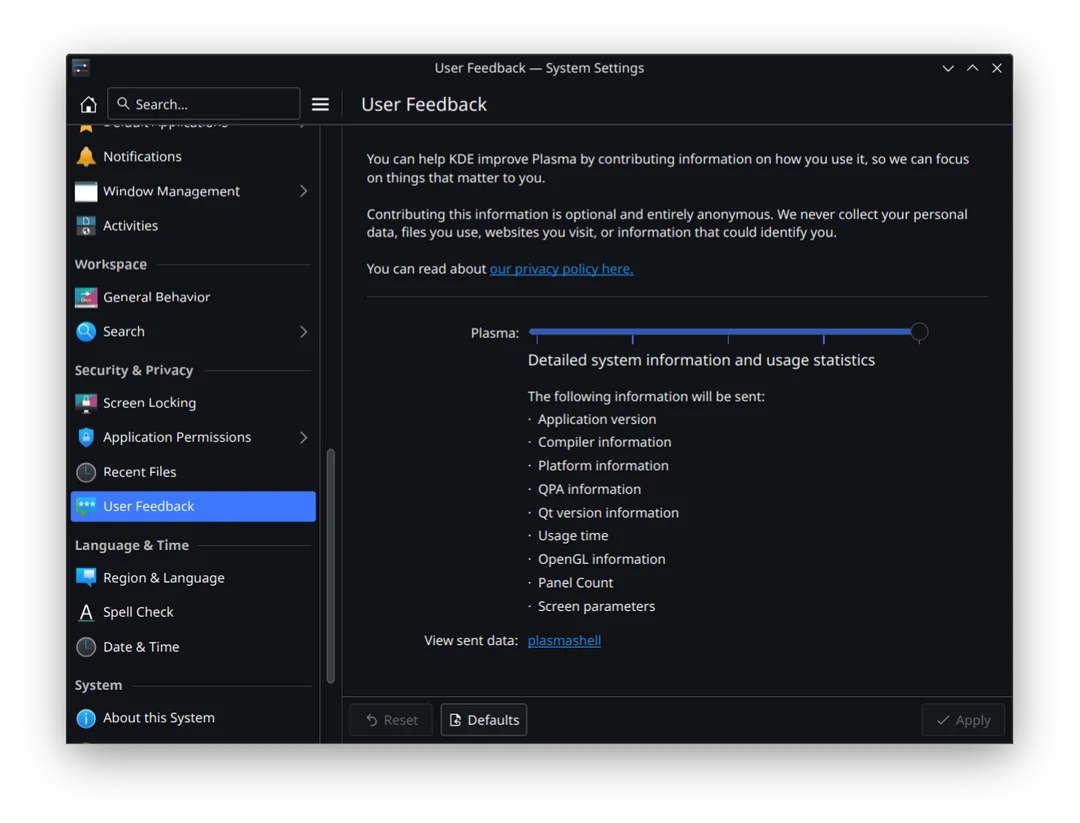this post was submitted on 01 May 2024
95 points (97.0% liked)
KDE
5588 readers
61 users here now
KDE is an international technology team creating user-friendly free and open source software for desktop and portable computing. KDE’s software runs on GNU/Linux, BSD and other operating systems, including Windows.
Plasma 6 Bugs
If you encounter a bug, proceed to https://bugs.kde.org/, check whether it has been reported.
If it hasn't, report it yourself.
PLEASE THINK CAREFULLY BEFORE POSTING HERE.
Developers do not look for reports on social media, so they will not see it and all it does is clutter up the feed.
founded 2 years ago
MODERATORS
you are viewing a single comment's thread
view the rest of the comments
view the rest of the comments

Yup, it bugs me a lot that they refuse to disclose the data so that we all can learn from it (especially for statistics practitioners)
The issue is that this data can be used to fingerprint or de-anonomize users. Even if it's just a big list of statistics, knowing how likely or unlikely a system change, setting change, version, etc. is can help greatly with a person looking to pin down users. They'll know how likely a person with a specific pattern is the same person.
I'm glad it's not distributed. If it was, I'd slide it all the way back to 0. Good intentions from the collectors doesn't stop bad intentions of consumers
Datasets are still valuable for the broader community - there are many datasets out there, like the Brain project or the Oasis project which provide important insights into brain illnesses to train state of the art ML models on.
Any practitioner who wishes to work on those datasets is to sign a contract where they pledge not to try to identify any patient.
These kinds of contracts have been around for a while now, and if we could negotiate a situation as tricky as brain illnesses, I'm certain the same can be done for which version you have of a software, which particular config changes one has made or, say, if you use KActivities at all.